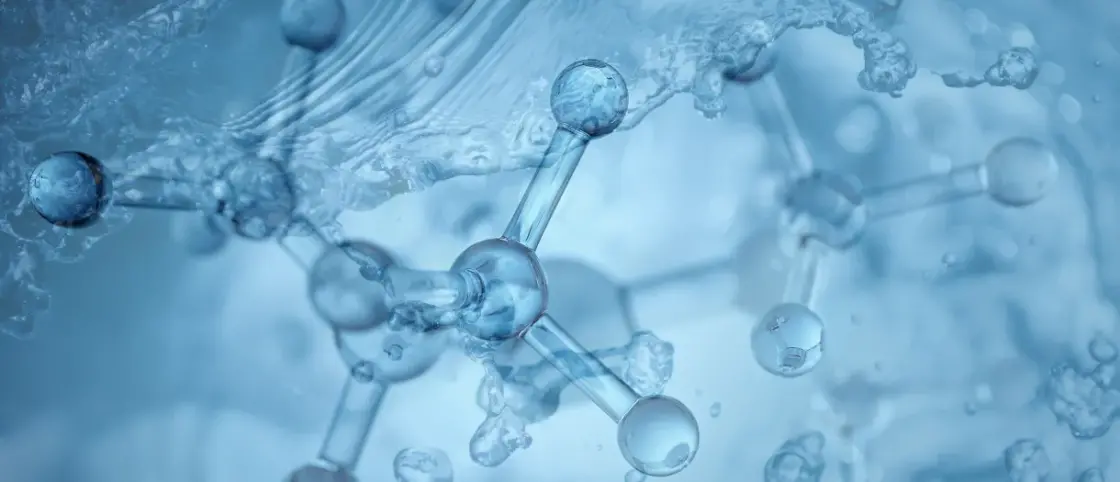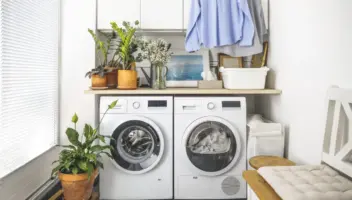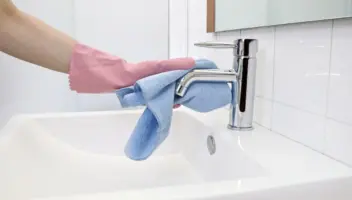The Hard Truth: (How) Do Salt-Free Water Softeners Work?

Did you know that 85% of Americans have hard water flowing through their homes? Though hard water does not pose a significant threat to health, it can cause significant (and costly) damage to plumbing and appliances. The two main types of water softeners are traditional and salt-free systems, but the most misunderstood is the salt-free water system. Let’s look at how salt-free water softeners work, the differences between traditional and salt-free systems, and which one is right for you.
What is a Salt-Free Water Softener?
For starters, it is not a softener at all! Although salt-free systems soften water, they actually are conditioners or descalers. The difference is in the chemical reactions during the water softening process. So, how do salt-free water softeners work?
These systems utilize potassium rather than sodium, where atomic-sized nucleation sites on the surface of tiny polymer beads convert the dissolved hardness of water into microscopic crystals. In other words, the hard water flowing through the media bed transforms the calcium and magnesium ions so they cannot cling to surfaces, preventing damage from scale build-up on plumbing and appliances.
Advantages of Salt-Free
Low Home Maintenance!
The main advantage of how a salt-free water softener works is that little homeowner maintenance is required! Compared to a traditional water softener, which requires one to lift a forty-pound bag of salt to refill their water softener almost once a month, if not more. This is a huge plus of salt-free water systems. It also eliminates the need to monitor salt bridging. Worry-free and maintenance-free!
Fresh, Clean Water
There are many benefits to having a salt-free water softener running through your home; the main benefit is great tasting, odor-free, clean water. When sulfur, or hydrogen sulfide, lives in the home’s plumbing or water systems, a foul odor and taste develop. A salt-free water system removes these contaminants by utilizing magnesium to neutralize sulfur. In addition, the salt in traditional systems can cause skin and hair to be dry or irritated. However, this is not a worry with salt-free systems, as they promote soft skin and silky hair.
No More Limescale Damage
Since a salt-free water softener acts as a descaler, it protects the home’s plumbing. Scale, also known as limescale, is a white, chalk-like substance that builds up where water is collected or distributed.
As homes age, scale build-up is a significant concern for plumbing and appliances that use hot water. Limescale causes less water to flow through pipes at a higher cost, and if untreated, it can clog the whole plumbing system. Not only does a salt-free water system break down limescale, but it also prevents it. In turn, it is elongating the lifetime of your plumbing, water heater, and appliances.
Disadvantages of Salt-Free
Higher Price Tag
For starters, the cost of salt-free water softeners can be more expensive than traditional systems. As all products range in price and value, a low-maintenance salt-free system tends to create a higher market value. Apart from the price, there are other reasons that owners experience less satisfaction with how salt-free water softeners work.
You Have Very Hard Water
Salt-free water systems may not be suitable for you if you are in an area that experiences extremely hard water. The conditions of extremely hard water require an ionic exchange that is not provided by potassium ions, making the system unable to provide the soft water your home needs.
Since potassium takes the place of sodium in a salt-free system, it creates a chemical transformation that makes it harder for scale to build-up in plumbing. However, this process forms a powder residue that can leave behind a film anywhere water flows. Some are unsatisfied with this result because it generates the need to clean the surfaces of your home more often.
Although a salt-free water softener is a descaler if your home’s plumbing already has heavy scale buildup it may increase the potential for a total blockage. While salt-free water treatment systems can eliminate years’ worth of limescale, the entire plumbing system would need replacing if a backup were to occur.
What’s Right for You?
When looking at a salt-free water softener, homeowners must consider the many trade-offs and decide which is right.
A salt-free system may not have as many water benefits as a traditional system, but it does come with low homeowner maintenance. It is best paired with a carbon filtration system to maximize the performance of a salt-free water conditioner. A carbon filtration system provides additional water benefits by removing contaminants like chlorine, chloramines, organic compounds, and chlorinated products.
Having a local professional test your home’s water is the best way to determine which water treatment solutions are right for you. Interested in starting your journey to having clean, soft water in your home? Click the link to learn more about our water conditioning products.


